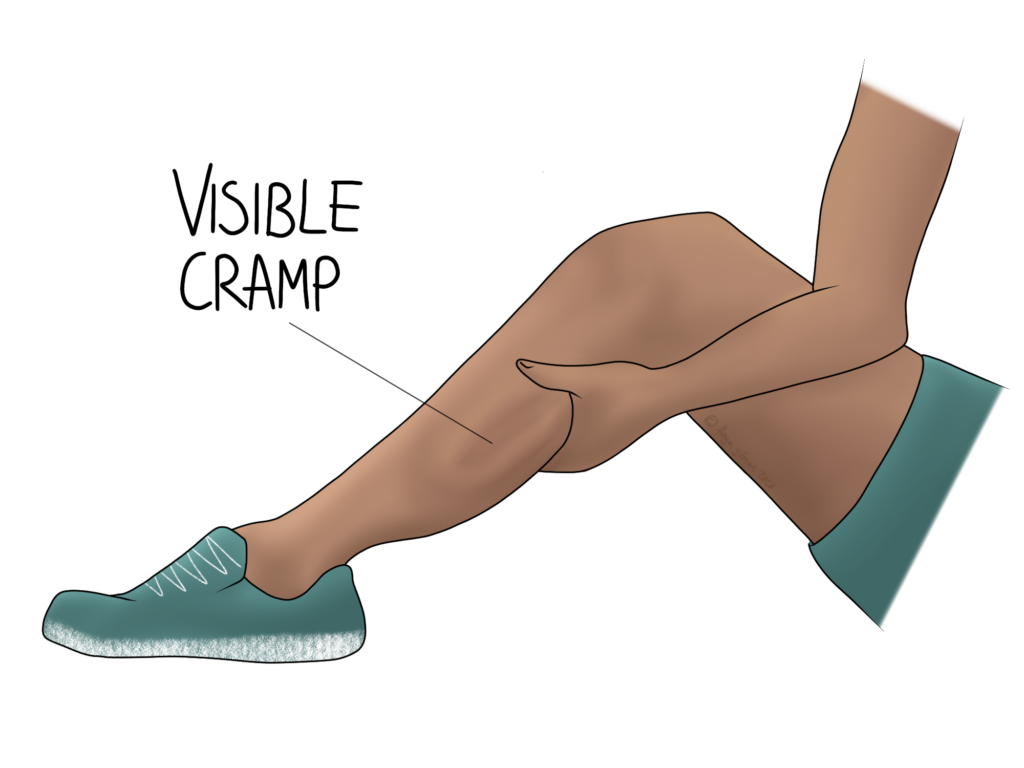04 August 2021
Cramps
Cramps are involuntary muscle spasms, often affecting the calf muscles. They can range from mild to very painful, and may be isolated episodes or recurrent.

Risk Factors for Cramps
Some people are more likely to suffer with a cramp than others. They include people who are:
- over 60
- pregnancy
- on certain medications such as statins or diuretics
- diabetic (especially if it is poorly controlled)
- athletes
Pregnant women are more likely to develop cramps in their third trimester. Typically, they affect the calves and happen mostly at night. This might be due to higher levels of fluid retention in the last few months of pregnancy, which can cause temporary neurological symptoms elsewhere like carpal tunnel syndrome.
If you take a number of different medications and suffer with cramps, it may be worth asking your GP for a medication review. There are often a number of similar drugs that can be prescribed to treat a problem. The slight differences between them can mean that some will cause symptoms and others won't. You may also like to see if there are any possible clashes between your medications, especially if you take a combination of prescribed and over the counter products. Some medications also interact with certain foods, which is not always something we are aware of when we start them.
Myths About Cramps
A common misconception is that cramps are caused by dehydration or electrolyte imbalance. This is offered as an explanation for cramping in athletes. Research shows that this is not the case. Symptoms can be more prominent in athletes who have suddenly increased their training. When setting new goals, it is advisable to give yourself time to increase the frequency or intensity of your workouts gradually. Not only could this reduce your risk of cramping, but it may also make you less vulnerable to injury.
Possible Explanations
When a muscle becomes tight, like it might do in the neck to protect after an injury, the instruction to do so comes from the brain. Tight muscles are not the fault of the muscles themselves. Similarly, when we massage or stretch a muscle, we are doing little to the muscle itself: we are working on the nerves. More specifically, we are challenging the signal that the brain is sending out to keep the muscle tight. Eventually, the brain stops sending the signal and the muscle relaxes.
With this knowledge in mind, one theory to explain cramps is neurological. Episodes often occur at the end of the day or after exercise, when we can assume that we are relatively fatigued. In this fatigued state, the nerves can misfire, asking the muscles to contract without much of a stimulus.
Osteopathy for Recurrent Cramps
Osteopathy is recognised as a therapy that may be able to help you with your cramps. Some people feel a benefit with regards to frequency or intensity of symptoms with regular treatment. We can also give you exercises and lifestyle advice. Stretching during an episode can help with the pain or sometimes shorten the time a muscle remains cramped. We can show you effective stretches for the muscles that affect you.
Although dehydration is not strongly linked to cramping, it is important to stay hydrated. Aiming to drink plenty of water through the day is good for all body systems.
Learn more
At Ilminster Osteopathy my goal is to help people achieve their goals whatever they may be. Watch our video to find out more.

